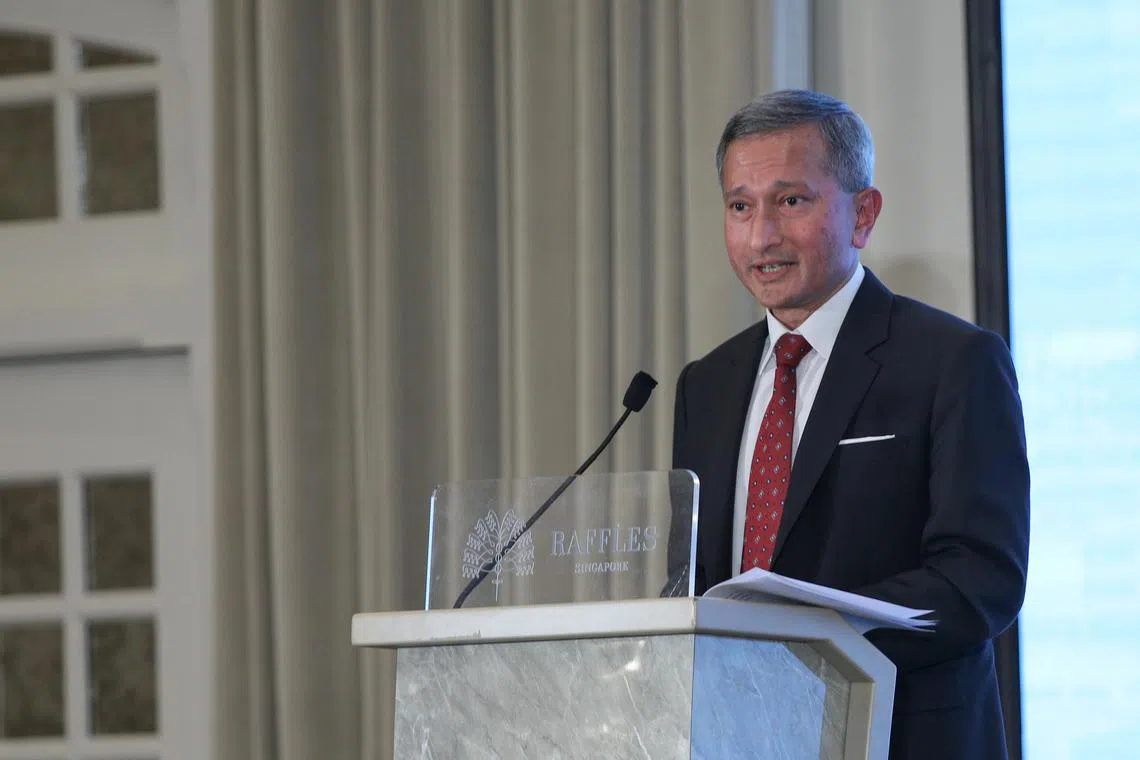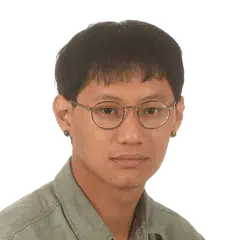New ‘non-aligned movement’ needed for countries amid US-China tensions: Vivian Balakrishnan
Sign up now: Get ST's newsletters delivered to your inbox

Foreign Minister Vivian Balakrishnan at the Next STEP Global Conference, held at the Raffles Hotel, on Nov 9, 2022.
PHOTO: MINISTRY OF FOREIGN AFFAIRS, SINGAPORE
SINGAPORE – There is a way for the world’s nations to continue collaborating on science and technology, even amid global fragmentation caused by tensions between the United States and China, said Foreign Minister Vivian Balakrishnan.
In a speech at the Next Step Global Conference on Wednesday, Dr Balakrishnan called for a new “non-aligned movement” for science, technology and supply chains as a response to the profoundly damaging consequences that a true technological and economic split between the two superpowers could cause.
The conference was organised by think-tank Peterson Institute for International Economics and the Lee Kuan Yew School of Public Policy. It started on Wednesday and will run until Friday at the Raffles Hotel.
Sketching what such a movement could look like in 2022, Dr Balakrishnan said: “It has to be multipolar, open and rules-based.
“There has to be a commitment to open science, the fair sharing and harvesting of intellectual property, and a system in which we will compete to be most innovative, reliable and trustworthy, rather than be judged simply by which side we have taken.”
The original non-aligned movement was a forum of about 120 countries – formed during the height of the Cold War in 1961 by states including India – that wanted to chart their own course outside the conflict between the US, the Soviet Union, and their allies.
Singapore joined the movement in 1970.
Dr Balakrishnan said that it was still early days for such an idea, but added: “I am just putting this on the table to say that the rest of us do have agency, and we will, to the maximum extent, refuse to choose sides.
“I do not believe any self-respecting Asian country wants to be trapped, or to be a vassal or, worse, to be a theatre for proxy battles. So, I am trying to make the argument for what the rest of the world wants.”
Earlier in his speech, Dr Balakrishnan described the global circumstances that have led to the need for such a movement.
The complete lack of trust between the US and China has led to both going their own way in terms of technological development, he said, noting how both sides have implemented policies to control the flow of technology out of their borders to maintain an advantage.
He said: “The absence of strategic trust will lead both sides to always assume the worst. (The) conditions are set – they are a self-fulfilling and mutually escalatory dynamic. This will almost certainly lead to a mutually escalatory, vicious downward spiral.”
This downward spiral towards fragmentation between the two economies will result in higher costs, more obstacles for scientific advancement and disruptions to global systems and supply chains, Dr Balakrishnan added.
He said: “The global order as we know it is severely stressed... We are witnessing probably an era of higher and prolonged inflation, which nobody below the age of 40 has lived through.”
Dr Balakrishnan also participated in a dialogue moderated by American economist Adam Posen, answering questions from the audience on Singapore’s reasons for sanctioning Russia over the Ukraine war, as well as his opinions on how to build trust between the US and China.
He closed his speech with a point of advice for both superpowers.
He said: “I will end with Newton’s third law of motion – every action has an equal and opposite reaction. I hope that our superpower friends bear this in mind, and also bear in mind that the rest of us do have agency and do have choices and, to the maximum extent, (we) will seek to raft ourselves to each other in open, inclusive architectures.
“In typical Asian fashion, more circles, less lines, more balance.”



